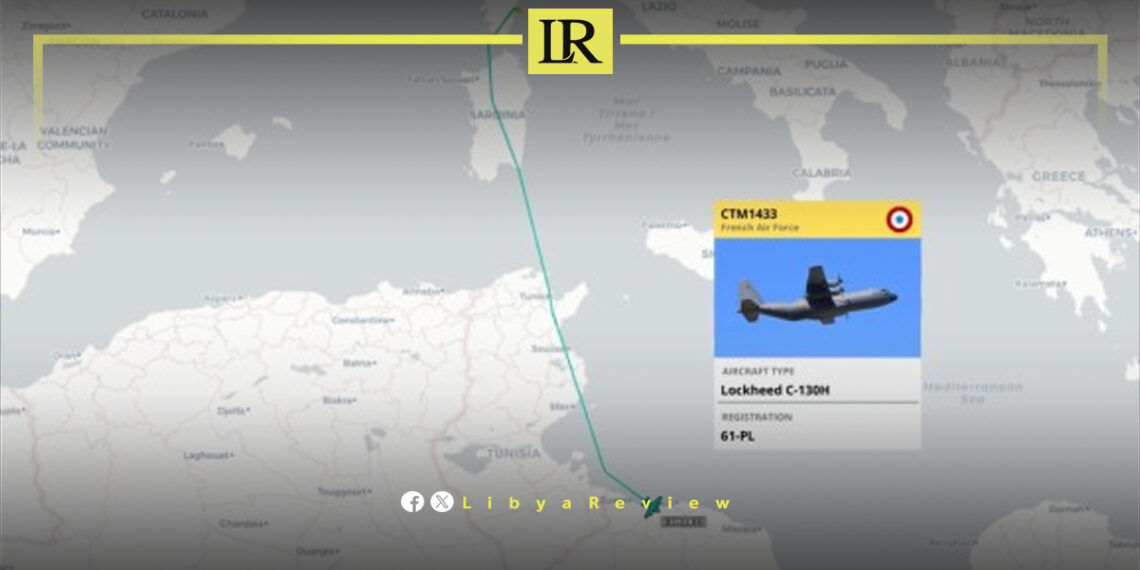On Monday, an Italian military tracking website, Itamil Radar, reported that a French Air Force aircraft was detected flying over southern Tripoli. The flight adds intrigue to the already complex situation in Libya, as the country remains a hotspot for geopolitical rivalries and military activity by several foreign powers.
According to the report, the aircraft was identified as a Lockheed C-130H, a versatile military transport plane, which took off from Solenzara Air Base on the French island of Corsica. The plane reportedly entered Libyan airspace and flew over the western region, passing through areas just south of the capital, Tripoli. This event marks the first recorded instance of a French C-130H flying over Libya, contrasting with previous sightings of French Airbus A330 aircraft during their transit to Central Africa.
The flight raises speculation about France’s military intentions in Libya, given the aircraft’s strategic capabilities. While no official statement has been issued by either the French or Libyan authorities, observers are closely monitoring the situation amid growing foreign involvement in the country.
The Lockheed C-130H Hercules is typically used for transporting troops, supplies, or equipment, and its presence suggests that the flight may have been part of a logistical or reconnaissance mission. This could be linked to broader French operations in the region, such as counter-terrorism efforts in the Sahel or covert intelligence-gathering to monitor security developments in western Libya.
The sighting of the French aircraft also comes amid increased international military activity in Libyan airspace. Countries such as the United States, Turkey, Italy, and Russia have maintained a visible military presence in the region, often conducting reconnaissance flights or providing logistical support to local factions. Libya’s strategic location—bordering the Mediterranean and neighboring unstable regions in the Sahel—has made it a focal point for international military interests.
France, in particular, has remained active in the region as part of its broader security operations in North and West Africa. Although the French government recently scaled down Operation Barkhane, which targeted militant groups across the Sahel, its military remains engaged through regional partnerships. Libya’s instability, characterized by a fragile ceasefire between rival factions and unresolved political tensions, presents both a security threat and an opportunity for international powers to assert influence.
As Libya faces a fragile political transition and persistent security challenges, foreign powers are likely to intensify their military activities, whether through direct operations or covert missions. France’s flight over Tripoli may only be the latest signal of international maneuvering in Libya’s complex geopolitical arena.


